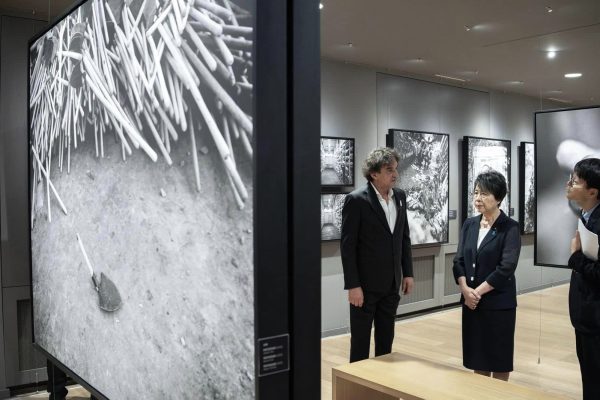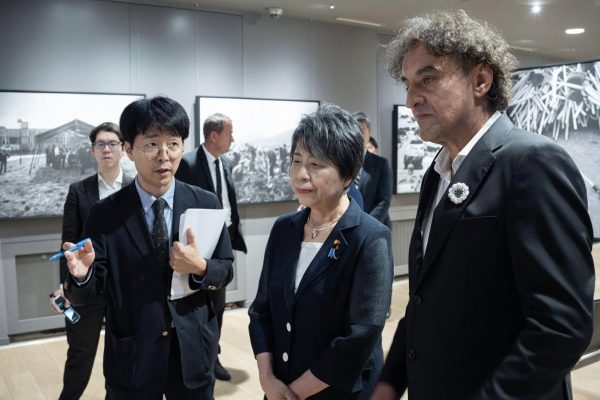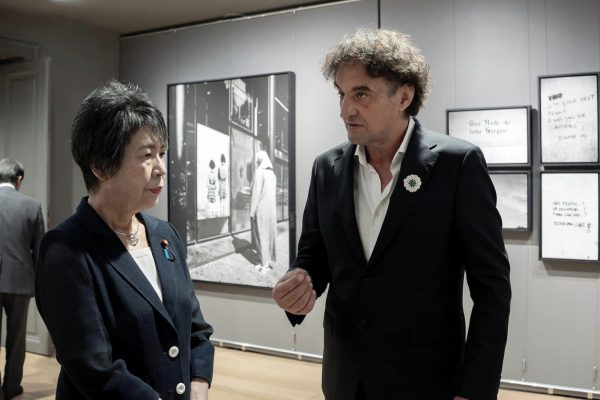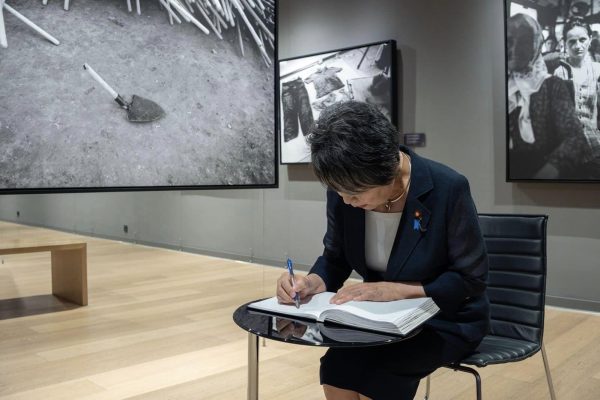Japan’s Foreign Minister, Yoko Kamikawa, visited Gallery 11/07/95 today as part of her official visit to Bosnia and Herzegovina. Minister Kamikawa was guided through the Gallery by Tarik Samarah, the director and founder of the Gallery, who presented the Gallery’s work, photographs, and the stories behind the photographs documenting the aftermath of the Srebrenica genocide.
Minister Kamikawa emphasized that it is extremely difficult to find adequate words to describe what happened in Srebrenica, but stressed the importance of striving for peace and stability in memory of the victims. She was particularly moved by the photographs and pointed out the precision with which the different aspects of the genocide were presented, as well as the importance, effort, and dedication of the Gallery in telling the story of the genocide.
After the visit, Minister Kamikawa wrote the following in the guest book: “Based on the many noble lives sacrificed, may the time of peace endure.”
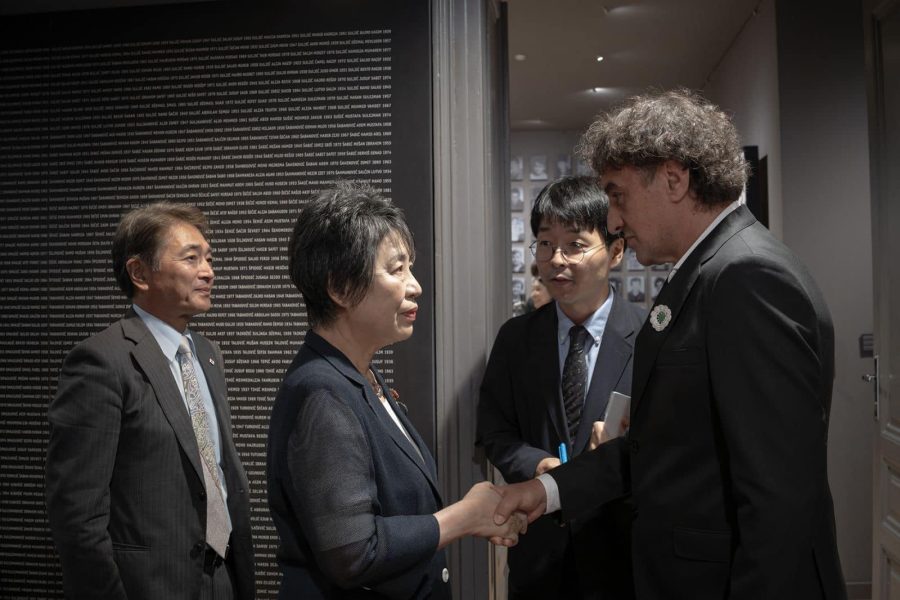
During the presentation, Tarik Samarah particularly highlighted the systematic manner in which the Army of the Republic of Srpska carried out the killings of Srebrenica’s residents, the concealment of the victims’ bodies, and the subsequent denial of the crimes, as well as the indifference of the international community.
“We are sincerely grateful to Minister Kamikawa, the government of Japan, and the people of Japan for recognizing the importance of commemorating the genocide and supporting the adoption of the Srebrenica Resolution in the United Nations General Assembly. We are currently in the final phase of genocide – the phase characterized by the denial of committed and proven crimes, the humiliation of victims, and the triumphalism of the policies that led to these horrific crimes. It is extremely important that the genocide that occurred in Bosnia and Herzegovina becomes a significant historical lesson from which future generations will learn about the importance of recognizing discriminatory policies that lead to crimes”, said Tarik Samarah.
Photo: Dženat Dreković
